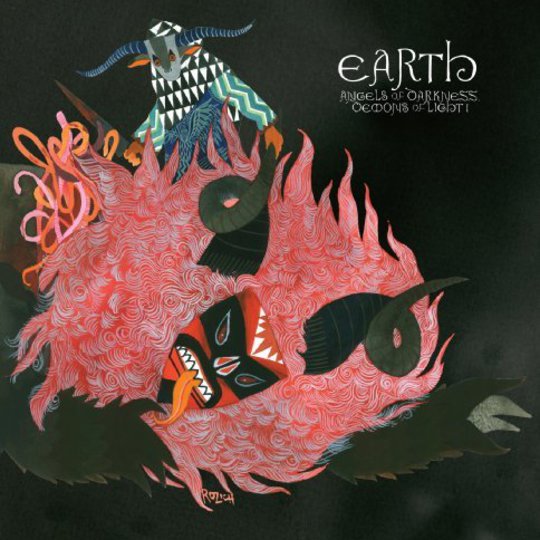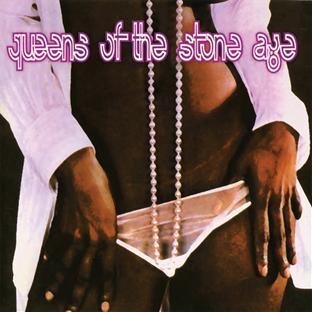It says a lot about modern music that there are entire genres devoted to ‘slow’. For a time, rock music felt like a rollercoaster – it was as though, after centuries of climbing, music had finally reached the crest of a vast hill, and it spent nigh on three decades tumbling and crashing down, ever faster and ever wilder. And then came the slow but inevitable plateau, a smooth and long leftwards bank towards a new understanding of what rock music was and could be. Suddenly speed wasn’t as valued as much as other qualities: tone and dynamics held sway.
It was this point in the extended metaphor that Earth can be placed. Of course, the leftwards bank can be taken to be the late Eighties and early Nineties, the years punk broke. Earth were symptomatic of this movement (which stretches far broader than simply ‘grunge’), of the way it re-evaluated and understood its antecedents in different ways. But where other bands have rolled off the edge of the track; crashed and burned, Earth, despite a hiatus throughout the latter third of the Nineties and the first half of the Noughties, have survived. Admittedly, theirs was hardly a smooth bank back onto course, as those familiar with Dylan Carlson’s legal history will surely testify, but the success of 2008’s The Bees Made Honey In the Lion’s Skull was testament to their rebirth and redemption. It was a smooth, humming, rising sun of a record, throbbing and pulsing with ideas, influences, and above all an element which Earth had not seen before. As much as I am loath to describe any record with such a meaningless adjective, there was a warmth about The Bees… that can only be described as ‘hope’.
In some ways, Angels of Darkness, Demons of Light 1 might disappoint those enamoured with The Bees… It is a notably darker record than anything which Earth have put out since Phase 3: Thrones And Dominions, their grimly hypnotic metal album. The mournful cello which bows in ‘Old Black’ feels not only funereal in tempo, but also weighed down by heavy pathos. The track only strikes one of those recognisable major chord shifts that lent The Bees… such a glowing optimism at around the third minute, preferring to grimly trudge forward over eight minutes.
Carlson has spoken about this album being written and recorded during a rather darker state of mind for him than The Bees…, alluding to near-death experiences and trips in and out of hospital, but it would be churlish to simply attribute the record’s tone to that. Earth’s longevity and rebirth is attributable to two things. Firstly, they proved the longterm viability of their central tenet of slowness: Angels of Darkness… is still the sound of a band making and playing music at tectonic speed. But secondly, it’s the increasingly broad horizon of Dylan Carlson’s musical vision, and Earth’s refusal to, unlike so many of their Nineties peers, remain stationary, that has given them a new lease of life.
It’s into this context which I’m happier to place Angels of Darkness… I don’t believe that Carlson ever had it in his mind to make The Bees Made Honey In The Lions Skull II, nor would most fans have wanted him to. Whilst on initial listens it’s tempting to point to the similarities between Angels of Darkness... and the previous record - that lolloping, loping guitar line on ‘Father Midnight’, when stripped of cello, could well have been taken straight out of ‘Hung From The Moon’ - in actuality, it’s better to see Angels of Darkness as a record worth judging on its own merits.
Doubtless, the first thing that will come to mind for many listeners will be the addition of a new instrument. The album is full of duelling, spiralling melodies as Carlson’s guitar dances a slow motion tango with new recruit Lori Goldston’s mournful bowed cello. On ‘Father Midnight’, her instrument caws and croaks, scraping emotion from the very strings, whilst elsewhere, she compliments Carlson’s honey-rich guitar tone (‘Descent to The Zenith”) with smooth bowed soothing. Mixing the classicism of a cello sound with Earth’s booming cinematica feels so natural a fit it’s almost tempting to ask oneself why it’s this long for the instrument to appear so widely on a Carlson penned record. At the same time, whilst praising the addition of the new, it’s also gladdening to hear that Carlson has retained Adrienne Moore’s services on percussion. It’s very easy to overlook the role of percussion in the new look Earth, but the range of dynamics, tone and sounds evoked from what is normally regarded in rock music as a fairly blunt instrument is worthy of praise.
Overall the record sports a much more minimal sound that anything Earth have attempted previously. The cello, combined with a more prominent bass guitar, retains Earth’s quintessential heaviness and depth, but the production is neater and the instrumentation more defined than anything previously released. Carlson has mentioned his unhappiness with the ‘claustrophobic’ sound he achieved last time working with Stuart Hallerman (on Earth 2) and the attempt to open out the sound is very much evident: even at the albums more symphonic crescendos there’s a definition and cleanness to the sound. At first thois might be jarring: Earth are meant to overwhelm you with sound, not dazzle you with technicality, but the adjustment is yet another vital part of Carlson’s evolution from drone act into something a bit, well, bigger. Agoraphobia, rather than claustrophobia, might just be the name of the game.
Yet album’s initial three tracks find Carlson in pensive mood: dark in tone and heavy in weight, laden with stringed pathos and clanking drumbeat. It’s when Earth shift effortlessly into something more widescreen on the final two tracks that they impress the most. ‘Hell’s Winter’ is perhaps the most direct descendent of The Bees…, with a clanking riff unfurling into spiralling dustball guitars. However, it’s the closing, twenty minute title track which steals the show. Anchored by a smooth, slightly swung bassline, it unrolls slowly, Carlson’s guitar sounding more eastern than it ever has, washes of warm feedback swirling around beautifully separated instrumentation that showcases the exquisite production job. It displays that charismatic patience and discipline, but is by far and away the most exotic and experimental track on the record: swathes of musique concrete closing out the final two minutes.
I made the point in a review of the recent re-issues of Earth’s early EPs that it’s possible to trace the lineage between individual Earth records, to feel the same blood pulsing through them, whilst noting how each moves on from the last. Earth’s evolution has been a perfect marriage of progression and rootedness which has enabled Carlson to pursue such a wide variety of styles with such great success. Angels of Darkness, Demons of Light 1 is not just an inevitable player in album of the year discussions for those with more avant garde tastes; it’s yet more proof of Earth’s symptomatic tendency to continuously re-evaluate their own legacy and drag themselves forward simultaneously. For a band so slow to never get stuck in rut, to never become stationary, is quite an achievement. Long may Earth trudge onwards.
-
8Philip Bloomfield's Score






















